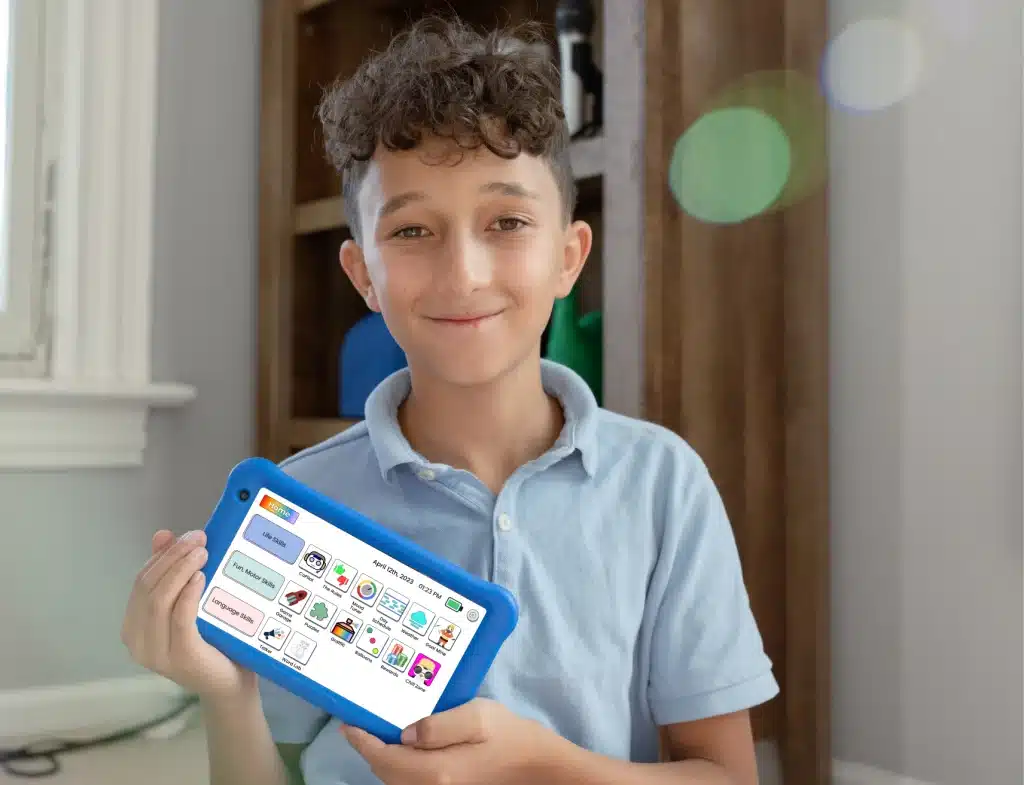Managing ADHD emotional outbursts can feel like a daunting task for parents and kids alike. In this post, we’ll help you understand the science behind these outbursts and provide practical strategies to navigate these challenges. We’ll also share valuable resources to support your family on this journey, so you can create a more harmonious environment for everyone involved.
Table of Contents
The Science Behind ADHD Emotional Outbursts
Firstly, it’s essential to understand the root causes of ADHD emotional outbursts. Kids with ADHD often experience the following:
- Impulsivity: They may react quickly without considering the consequences.
- Emotional dysregulation: Difficulty in managing and expressing emotions appropriately.
- Sensory overload: Heightened sensitivity to external stimuli, leading to overwhelm.

Are you a kiddo who sometimes erupts like a mini volcano, seemingly out of nowhere? You’re not alone! ADHD emotional outbursts can be a real struggle. Why? Well, kids with ADHD often find it tough to manage their feelings. Blame it on how their brains are wired—science shows they’ve got unique brain functions and structures that make reigning in those emotions a bit more challenging. So, when you mix ADHD’s usual suspects, like hyperactivity and distractibility, with emotional ups and downs, voila! You’ve got the recipe for those unpredictable ADHD outbursts. Keep reading to discover how you can help your child navigate this emotional rollercoaster.
Read More: Best ADHD Medication for Emotional Regulation
Practical Strategies for Managing Emotional Outbursts
Now that we’ve identified the causes let’s explore some practical strategies to help manage ADHD emotional outbursts in kids:
- Create a calm environment: Minimize sensory overload by reducing noise, clutter, and visual distractions. This can help your kid feel more at ease and less likely to become overwhelmed.
- Establish routines: Consistent daily routines can provide predictability and reduce anxiety. For example, a morning routine might include waking up, getting dressed, eating breakfast, and brushing your teeth. Routines can also help with time management and organization, which are often challenging for kids with ADHD.

In addition to these strategies, there are other ways to help your child manage their emotions:
Supporting Your Child’s Emotional Development
In addition to the strategies above, it’s crucial to support your child’s emotional development. Here are some ways to do so:
- Empathy: Show understanding and validate their feelings, even if their reactions seem disproportionate. This can help your kid feel heard and supported.
- Model healthy emotional expression: Demonstrate how to express emotions appropriately and manage stress effectively. By doing so, you can provide a positive example for your child to follow.

Read More: Social Emotional Development Milestones
Furthermore, encouraging open communication and seeking professional help when needed can also be beneficial:
- Encourage open communication: Foster a safe space for your kid to share their thoughts and feelings without judgment. This can help them feel more comfortable discussing their emotions and seeking support.
- Seek professional help: If needed, consult with a therapist or counselor specializing in ADHD and emotional regulation. They can provide tailored guidance and strategies to help your child manage their emotions more effectively.
Resources for Parents of Kids With ADHD
To further support you and your child, we’ve compiled a list of valuable resources:
| Resource | Description |
|---|---|
| Books | There are numerous books available that offer guidance on managing ADHD emotional outbursts, such as “The Explosive Child” by Dr. Ross Greene and “Parenting with Love and Logic” by Charles Fay and Foster Cline. |
| Online forums and support groups | Feeling overwhelmed by your kid’s ADHD outbursts? You’re not alone! Connect with other parents who get it on online forums like CHADD and ADDitude Magazine’s community. It’s a quick way to swap advice and get some much-needed support. |
| ADHD apps | Explore apps designed to help kids with ADHD, like Goally, which offers tools for managing routines, tasks, and behavior. |
| Educational resources | Access informative articles, webinars, and podcasts on ADHD and emotional regulation from reputable sources like Understood.org and ADDitude Magazine. |

Give your kid an independent future. Goally has 15+ learning apps that teach life skills. There are NO web browsers, social media, or YouTube.
Our apps teach executive function, language, emotional regulation, finger dexterity skills, and more. It also 100+ video classes teaching social skills.
Weathering the Storm Together
In short, ADHD emotional outbursts can be challenging for both kids and parents. However, by understanding the causes, implementing practical strategies, and accessing valuable resources, you can help your child manage their emotions and foster a more harmonious family environment. Remember, you’re not alone in this journey, and with patience, empathy, and support, you and your child can weather the storm together.
This post was originally published on 07/08/2023. It was updated on 09/17/2023.

Goally
We help parents teach their kids life skills, like doing bedtime and morning independently. Backed by science, we incorporate evidence-based practices and expert-informed designs in all of our apps and content.





